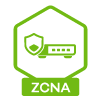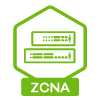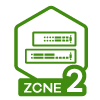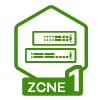Can't access my Mac via LAN from another computer by host name .local
I have a mac with local host name. Let's say MACBOOK-pro-Name.local. It pings fine from the MAC itself. I also have a static LAN ip Address on this MAC like 192.168.1.7
I need to connect to a webserver on my mac from a PC in the same LAN. But PC just cannot even ping the mac by its host name. To make sure it's not a router that block the connection I tried to ping the mac from the PC by its direct LAN address 192.168.1.7 and it pinged just fine.
The simplest solution is to just use the LAN address but I want to find out why I can't access the mac by its hostname. Is this possible without changing the router settings? If not, what is the host name good for at all? p.s. I tried to google a lot before asking this
All Replies
-
Which is Zyxel Wireless issue? I can't understand how, I'm sorry.
0 -
Hi @apklub
Welcome to Zyxel community!
Thanks for your detailed description for us to know your application.
Could you provide the access point model name and running firmware version information?
We’ll clarify the mechanism then update you afterwards.
Thank you
Regards,
Bella
0 -
If you're unable to access your Mac through LAN from another computer using its hostname ending in '.local,' there could be a few potential issues to investigate. First, ensure that both computers are on the same local network. Check that the Mac's file sharing and network discovery settings are enabled. It's also essential to confirm that the '.local' domain resolution is functioning correctly on your network, as it's used for hostname resolution in macOS. If you continue to experience difficulties, you may need to check for any firewall or security software settings on your Mac that could be blocking LAN access. Sometimes you face this issues when you on the proxy for paying different games in multiple locations. Additionally, verify that there are no duplicate hostnames on the network causing conflicts. Troubleshooting these factors should help you regain access to your Mac via LAN using its hostname ending in '.local.
-1 -
If you can't access your Mac on the same local network using its '.local' hostname, check that both computers share the same network. Ensure file sharing and network discovery are enabled on your Mac. Confirm proper '.local' domain resolution for macOS hostname. Check for firewall settings on your Mac, especially if using a proxy for gaming. Avoid conflicts by ensuring no duplicate hostnames exist on the network. Addressing these issues should restore LAN access to your Mac via its '.local' hostname.
0 -
One possible cause might be related to network connectivity – ensure both devices are on the same local network and have valid IP addresses within the same subnet. Additionally, confirm that File Sharing is enabled on your Mac through the "System Preferences" settings, and verify that Bonjour, the protocol enabling ".local" host names, is running. Restarting the Bonjour service infopulsepro using Terminal commands might help address any potential glitches. Check your DNS settings and consider manually setting DNS servers to ensure proper resolution. If troubleshooting these aspects doesn't resolve the problem, inspect firewall settings on both the Mac and the connecting computer.
-1 -
It seems like your Mac's hostname (MACBOOK-pro-Name. local) is not resolving properly on your local network from your PC. This could be due to various reasons, such as a lack of support for Bonjour (multicast DNS) on your PC or issues with network discovery.
To troubleshoot, you can try the following:
- Ensure that both your Mac and PC are connected to the same local network.
- Check if network discovery is enabled on both devices check Resources.
- Verify that there are no firewall rules blocking communication between the devices.
- Consider installing Bonjour support on your PC if it's not already enabled.
- You can manually add an entry to the host file on your PC to map the Mac's hostname to its IP address.
If you're unable to resolve the hostname issue, using the LAN IP address of your Mac (192.168.1.7) is a practical workaround for accessing the web server. However, hostnames are still valuable for ease of identification and management within your network.
-1
Categories
- All Categories
- 441 Beta Program
- 2.9K Nebula
- 208 Nebula Ideas
- 127 Nebula Status and Incidents
- 6.4K Security
- 528 USG FLEX H Series
- 331 Security Ideas
- 1.7K Switch
- 84 Switch Ideas
- 1.3K Wireless
- 50 Wireless Ideas
- 6.9K Consumer Product
- 293 Service & License
- 461 News and Release
- 90 Security Advisories
- 31 Education Center
- 10 [Campaign] Zyxel Network Detective
- 4.7K FAQ
- 34 Documents
- 86 About Community
- 99 Security Highlight
 Freshman Member
Freshman Member

 Guru Member
Guru Member



 Zyxel Employee
Zyxel Employee



